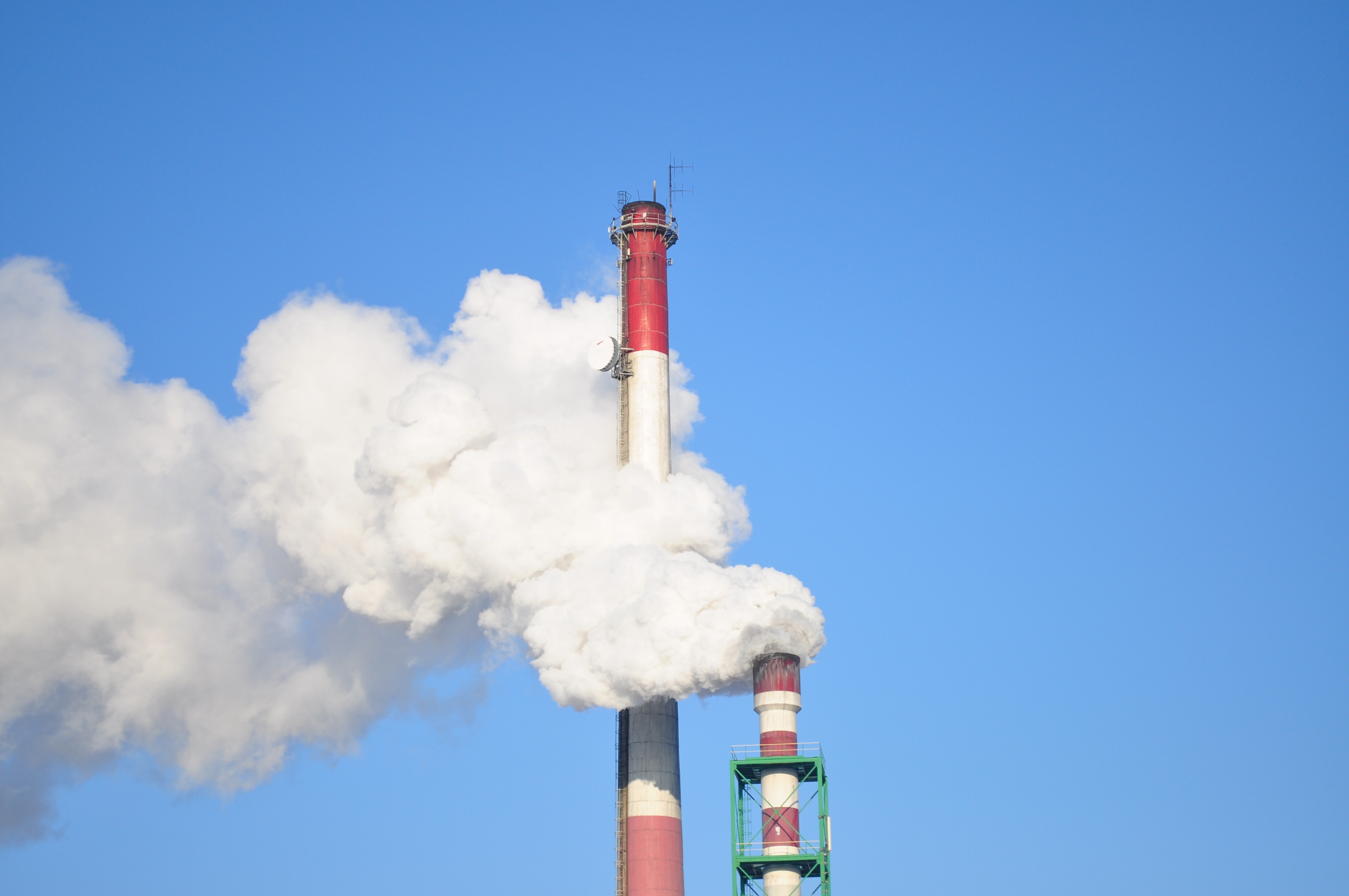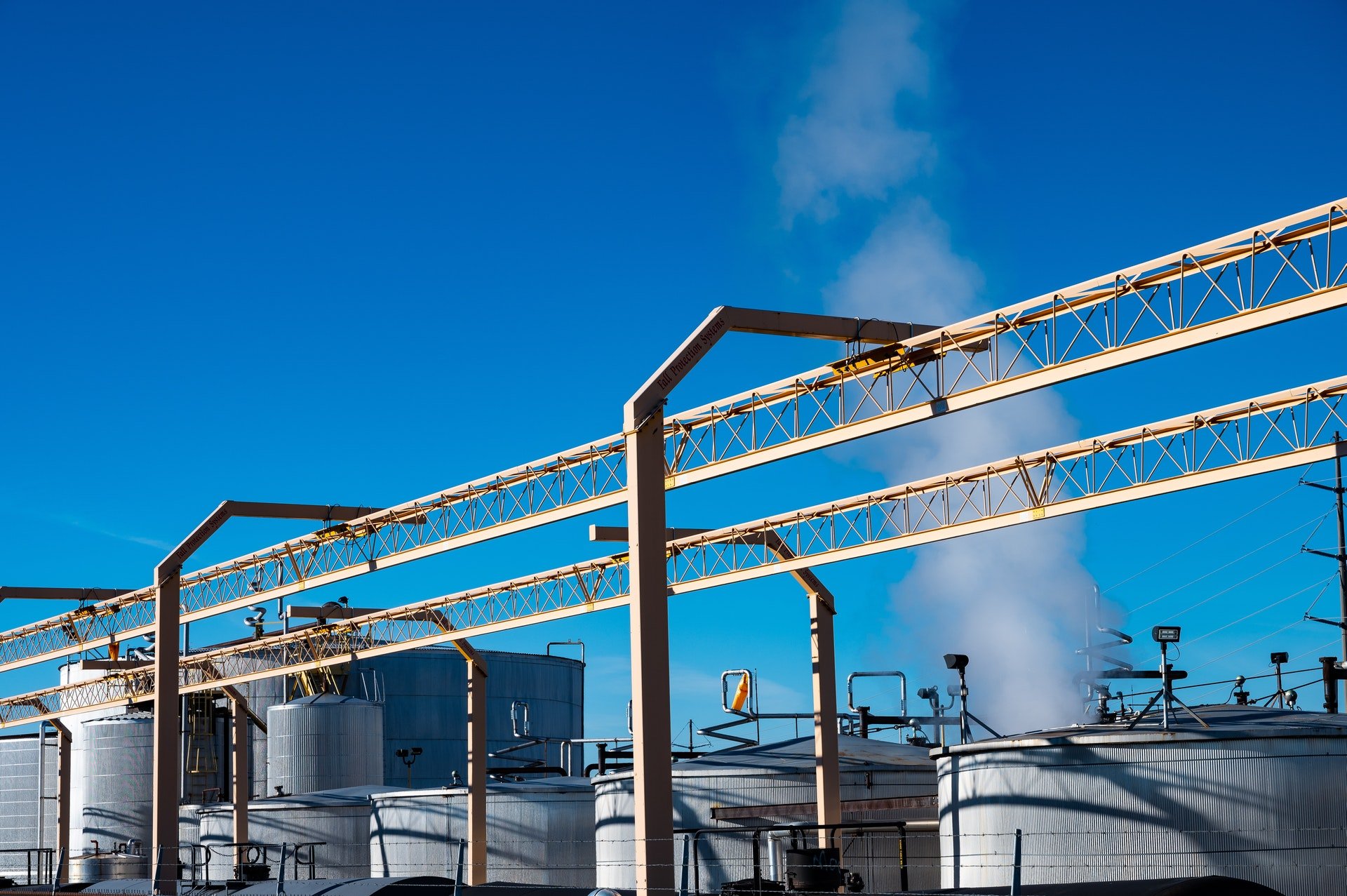Find out exactly what air permits are, how they're issued, how long they're good for and more!
One of the most widely applicable environmental regulations out there is air permits. Many different types of operations, from apartments with boilers to hospitals with emergency generators, to quarries that crush rocks, to massive petrochemical plants with stack emissions, may all require some type of air permit. Great, but, what actually ARE air permits?
Let's answer this question, and dive into providing a basic level of understanding when it comes to air quality permits.

What is an air permit?
An air permit is a legal document that gives an individual and/or facility the authority to emit specific pollutants into the air for either industrial or commercial means. The purpose of many air permits is to ensure that facilities do not emit pollutants in quantities that could pose an environmental threat or adverse health risk to humans or the environment. To put it simply, an air permit is a document that allows you to pollute a specified amount without getting into trouble.
Many states, counties, or other local air permits are modeled off the Clean Air Act’s Federal NSR (New Source Review) permits. New Source Review is a Federal rule that orders facilities to install modern pollution control equipment upon construction or modification of the air pollution source. However, many states have modified these federal NSR permits to suit their individual state requirements, which may be above and beyond the Federal requirements. This process evolved to yield various types of air permits in many states across the US. For this reason, air permits in Indiana may be much different than air permits in New Jersey.
Does the Federal government issue air permits?
No, the Federal government (in this case, the USEPA) does not normally issue air permits. There are some uncommon cases, for example, on an Indian Reservation or other government-owned lands, where the Federal USEPA might issue your permit. Most often though, states bear the responsibility of issuing air permits for sources of air pollution. And, to take things a step further, region, county, city, or other local governments and regulatory agencies may issue air permits that are more strict than what the state calls for.
So, you should always make sure that you are aware of the regulations and permits in the municipality that applies to you. For example, the city of Philadelphia will probably have a different permit or more strict regulations than the state of Pennsylvania. If you are in a major city, you most likely will need the city air permit as opposed to the state permit. But it all depends!

Minor vs Major Source Air Permits
If you've looked into air permits at all, you may have heard the terms minor and major source thrown around quite a bit. Minor and major sources are exactly what they sound like: a minor source emits less pollution than a major source.
Operations are classified as major or minor sources based on their potential to emit (PTE) values. However, if your operation is located in a nonattainment area, these values may be even lower to ensure compliance with National Ambient Air Quality Standards (NAAQS).
There are a lot of terms here that may be a bit confusing. Let's discuss what PTE, nonattainment, and NAAQS mean.
What Is Potential to Emit or PTE in relation to an air permit?
Potential to emit is a facility’s estimated maximum annual emissions, typically in the units of pounds per year or tons per year.
For example, a facility may have the potential to emit 70 tons per year of particulate matter, based upon operating conditions of 8760 hours per year of operation, without controls, at their facility's maximum production rate. Though this is unrealistic in many cases, this “potential to emit” is often used for air permitting purposes to establish conservative emission limits. Essentially, the potential to emit figures is usually assessed in a "worst-case scenario" fashion in order to ensure that facilities will fall below them. This helps regulators to hedge against the possibility of companies over-polluting and establishes a buffer for air quality.
However, in many states (and for many air permit applications), the local permitting agency may allow operational restrictions (hours per year limits/production limits) to be used when calculating potential to emit figures. Some states, like New Jersey, for example, will also allow the PTE to be calculated after the use of control devices, which will lead to much lower annual emissions. Facilities should be sure to determine how the regulatory agency interprets potential to emit to avoid permitting themselves with too low or high emissions standards.

What do nonattainment and NAAQS stand for in relation to air quality permits?
Nonattainment is a Clean Air Act term used to indicate that a geographic area is not meeting the NAAQS (National Ambient Air Quality Standards). The NAAQS is a federal standard that sets emission limits for six key pollutants (ground-level ozone, particulate matter, nitrogen oxide, sulfur dioxide, carbon monoxide, and lead). Essentially, nonattainment is a word that means that the air quality in a certain area is too polluted to meet Federal standards.
States have the responsibility of enforcing these NAAQS limits through what is known as state implementation plans, which designate how states will meet the NAAQS for a given geographic area. When certain areas cannot meet the NAAQS, they are designated as a nonattainment area by the USEPA. Depending on the degree of pollution present, a geographic area may be listed as a moderate or severe nonattainment area. This designation very likely will affect your air permit application, imposing stricter limits on short-term and long-term emissions. All of this is really to say that if your facility is located in a place where the air quality is already considered to be bad, you'll likely have a more strict permit.

What sources of pollution, pieces of equipment, or types of facilities require air permits?
This can be a tricky one to answer, as many states differ regarding what needs an air permit and what does not. Some states have stricter permitting standards because they already have poor air quality, and others just want to keep their clean air the way it is! For a full breakdown on who needs an air permit, be sure to check out our blog Do I need an air permit? where we cover this topic in detail. And, for an idea of what you can expect to pay for one, check out How much does an air permit cost? for more information. For now, just know that there are some common trends across the United States of common operations that will likely require an air permit. We have broken these down into two categories: Major and Minor source operations.
Minor Source Operations
Again, minor source operations are considered to pollute the air less than major source operations. Depending on your location, regulations, facility, etc., you may or may not need an air permit as a minor source operation. Some of the most common minor source operations follow:
- Asphalt Plants
- Dry Cleaning Operations
- Concrete Plants
- Generators & Emergency Generators
- Quarry Operations (crushing/screening/stacking)
- Electroplating/Polishing Operations
- Gas Storage Tanks > 2000 gallons
- Degreasing Operations w/VOC solvents
- Combustion Equipment > 1 MMBTU/hr.
- Large Solid Material Storage Containers
- Wood Grinding Operations
- Grain Loading Operations
- Abrasive Blasting (sandblasting/shot blasting/etc.)
- Landfills
- Printing Operations
- Pharmaceutical Production

Note that just because an operation is listed here does not automatically indicate it requires an air permit in your state/county/city. This list provides a good conservative estimate of equipment that in most cases will require an air permit across the United States. You should always consult with applicable regulations, or when in doubt, reach out to an expert.
Major Source Operations
Major source operations are considered to heavily pollute the air, and therefore will almost always need an air permit. Some of the most common major source operations follow:
- Metal Manufacturing & Processing
- Glass Manufacturing
- Chemical Production Plants
- Paper Mills
- Cement Plants
- Oil Refineries
Note that there are many more operations falling under the major source category that will require an air quality permit not listed here. Again, always check the regulations for yourself, or if you're in over your head, talk to an expert!
How long are air permits good for?
This really depends on who issues the permit. States (or counties, cities, regions, or whoever is issuing the permit) have the final say on how long they will allow an air permit to remain active after they are issued. Some have no expiration dates for some minor source permits. Others have a 5-year renewal date or even a 1-year renewal date! When in doubt, it is best to check your permit, research local environmental regulations, or again, talk to an expert!
Whenever your permit expires, you'll need to submit a renewal application. Sometimes these renewals are free of charge, and sometimes they require a fee. Again, it really depends on who is issuing the permit. Companies may be required to provide proof that their facilities are still in compliance with certain rules and regulations before they can renew their air permits. The conditions and requirements of your air permit renewal will be outlined by whoever issues it.

Air permits may seem complicated, but they're actually pretty simple.
To put it simply, air permits are documents that allow companies to pollute a specified amount without getting into trouble.
Air permits are required by all kinds of different operations across many industries, with most being classified as either minor or major sources.
Air permits are most often issued by the state, city, or local government/regulatory agency that an operation is located in.
There are different kinds of air permits with different conditions and regulations, but they all seek to achieve the same goal: to keep the air that we breathe clean and healthy for everyone - an important cause that everyone can support. After all, who wants to breathe dirty air?

Need additional air permitting help?
If you’re trying to figure out whether or not you need an air permit, this might be a lot to take in. If you're overwhelmed, you're not alone. RMA has been actively involved in helping organizations deal with environmental regulations, plans, permits, and approvals since our founding in 1992. Long story short, we know the environmental concerns facilities face regarding air quality permitting, in addition to other environmental issues. We can help you get into compliance with applicable environmental laws and regulations, ensuring your business stays out of trouble and in compliance.
Our staff has been on-site at thousands of facilities across the country, so when we say we've seen it all and done it all, we mean it. We've provided help with air permits to everyone, from globe-spanning, multi-national organizations to small "mom & pop" operations.
If you're having any type of issue at your operation with your air permitting program, need to apply for an air permit, or anything else, and need the help of an environmental consulting firm with a proven track record, reach out. Even if we can't help, we’ll do our best to steer you in the right direction. Feel free to contact us at info@rmagreen.com, click here to contact us, or give us a call anytime at 888-RMA-0230 to learn how we can help your operation deal with environmental regulations and air permits.









